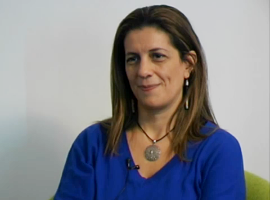InfoQ Homepage Patterns Content on InfoQ
-
Adam Weisbart on Improv, Magic and Fun on Agile Teams
Adam Weisbart talks about using improv and magic to make Agile more fun and shares a bunch of practical tools and resources that should be of interest to anybody leading or coaching an Agile team.

-
Interview with Adam Ernst on functional approaches for iOS applications
Adam Ernst talks about how functional programming and immutable data structures have made Facebook’s iOS app much easier to test and debug. By decoupling the data pipeline from the UI objects, and minimising the wrk on the UI thread, the application has become easier to test and suffers less bugs than when the UI was generated procedurally.

-
Crista Lopes on Constraints and Styles of Programming
Crista Lopes discusses the idea of using constraints to define styles of programming and architecture. Also: large scale static analysis of open source code, Open Simulator and VR, and much more.

-
Lachlan Heasman and Bernd Schiffer on Agile Coaching
Lachlan Heasman and Bernd Schiffer talk about Agile Coaching and how to define it and the skills required as well as their experiences along the way including Scrum PLoP, 42 things and Agile meetups.

-
Saul Mora on Design Patterns for Mobile Development
Saul Mora explains why Design Patterns are useful for mobile developers to understand (iOS) APIs, the power of Objective-C, mobile development trends, the difference between iOS and Android, and more.

-
Amr Elssamadisy – Safety
Amr Elssamadisy, founder of Agile Culture New York and author of the book Agile Adoption Patterns, shares his thoughts on why safety is essential to Agile success. We know that learning is essential for successful agility, and teams learn best through failure – but failure is inherently unsafe. The key to success is in making things safe. Without safety you cannot learn effectively from failure.

-
Dan Mezick – Engagement
Dan Mezick, author of the book The Culture Game, shares his insights on engagement as the fuel of successful and lasting Agile adoptions. Pulling examples from Open Spaces and the computer gaming industry, Dan explains how they both implement four basic rules: have a clear goal, a clear set of rules, a good feedback system, and support an opt-in participation strategy.

-
Bob Lee on Java's Future, Lambdas, DI with Guice vs Dagger, Java and Ruby at Square
Bob Lee explains the popularity of Java, future language features like Lambdas, DI with Guice vs. the Dagger framework, the role of Java vs. Ruby at Square, hiring at Square, security and much more.

-
Adam Weisbart on Agile Antipatterns and Tools to Make Agile Fun
Adam Weisbart discusses making Agile fun, through the use of resources he has developed such as "Build Your Own Scrum", "Retrospective Cookies", "Update The Card Wall" and "Agile Antipatterns", all of which can be found at http://weisbart.com/.

-
Beyond Fearless Change: New Patterns and the Agile Mindset
In this interview Linda Rising describes what she has learned since writing Fearless Change and introduces 12 new patterns. Linda describes how she realized that some patterns are bigger, wider, and deeper than she originally imagined and offers the Piggyback pattern as an example. Linda also presents research into the fixed versus Agile mindset and renders her own conclusions.

-
Mike Stolz on NoSQL and Big Data Design Patterns
In this interview recorded at QCon New York 2012 Conference, VMWare's Mike Stolz talks about the design patterns that help with processing and analyzing the unstructured data. He also explains the patterns for combining Fast Data with Big Data in finance applications as well as the role of in-memory databases in NoSQL database space.

-
Dick Wall on Scala, DI with SubCut, Scala Compiler Plugins, Java's Future
Dick Wall explores the state and future of Java, his reasons for switching to programming in Scala, the SubCut Dependency Injection library for Scala, Scala Compiler Plugins and much more.
